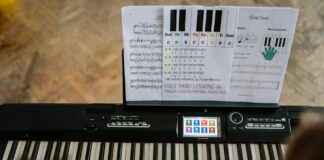When it comes to the New York Times crossword puzzles, few challenges are as intriguing and daunting as the vault opener puzzles. These unique enigmas require not just knowledge but a specific set of strategies to unlock their secrets. This guide aims to equip you with effective techniques and insights that can transform your approach to these challenging puzzles, ultimately enhancing your solving skills and boosting your confidence.
Vault opener puzzles are not your average crossword challenges; they demand a blend of creativity and critical thinking. Often, they incorporate clever wordplay, puns, and unexpected twists that can leave even seasoned solvers scratching their heads. Understanding the essence of these puzzles is the first step towards mastering them. The thrill lies in the journey of discovery, where each clue serves as a key to unlocking the overall theme.
To tackle these complex vault opener puzzles, employing a variety of strategies is essential. Here are some techniques that can significantly improve your solving experience:
- Familiarize Yourself with Common Clue Types: Many vault opener puzzles utilize specific types of clues, such as those involving wordplay or cultural references. By being aware of these commonalities, you can approach each puzzle with a sharper focus.
- Recognize Patterns: As you solve more puzzles, you may notice recurring themes or patterns. This recognition can provide valuable context, allowing you to anticipate potential answers based on previous experiences.
- Expand Your Vocabulary: A robust vocabulary is a crossword solver’s best friend. Regularly reading diverse materials can introduce you to new words and phrases, enriching your ability to tackle even the most obscure clues.
In today’s digital age, a wealth of resources is available to aid crossword enthusiasts. Here are some valuable tools that can enhance your solving experience:
| Resource Type | Description |
|---|---|
| Online Communities | Joining forums or social media groups dedicated to crossword solving can provide camaraderie and shared insights. Engaging with fellow enthusiasts can make the process more enjoyable and less isolating. |
| Crossword Apps | Several apps are designed specifically for crossword enthusiasts, offering hints and solutions when you’re stuck. These tools can be a lifesaver during challenging puzzles. |
For instance, a popular app allows users to input letters they already have and suggests possible words based on that input. This can be particularly helpful when you feel stuck and need a nudge in the right direction.
Regular practice is vital for improving your crossword-solving skills. Engaging with past vault opener puzzles can help you sharpen your techniques and build confidence over time. As you tackle these puzzles, consider the following:
- Analyze Your Completed Puzzles: After finishing a puzzle, take a moment to review your answers. Reflect on the clues that challenged you and identify the strategies that worked well. This analysis can illuminate areas for improvement.
- Set a Consistent Practice Schedule: Establishing a routine can foster consistency in your solving efforts. Whether it’s a daily puzzle or a weekend challenge, regular engagement will help track your progress and celebrate small victories.
Imagine sitting down with a cup of coffee on a Sunday morning, the New York Times crossword spread out before you. As you sip your drink, you feel a sense of anticipation. With each clue, you are not just filling in boxes but embarking on a mini-adventure. The satisfaction that comes from cracking a particularly tough clue is akin to finding a hidden treasure. It’s these moments that keep solvers coming back for more.
In summary, vault opener puzzles in the NYT crossword offer a unique blend of challenge and excitement. By understanding the nuances of these puzzles and employing effective strategies, you can enhance your solving skills and enjoy the journey of discovery. Remember, each puzzle is not just a test of knowledge but an opportunity to engage your mind and have fun along the way. So gather your tools, embrace the challenge, and dive into the world of crossword puzzles with renewed vigor!
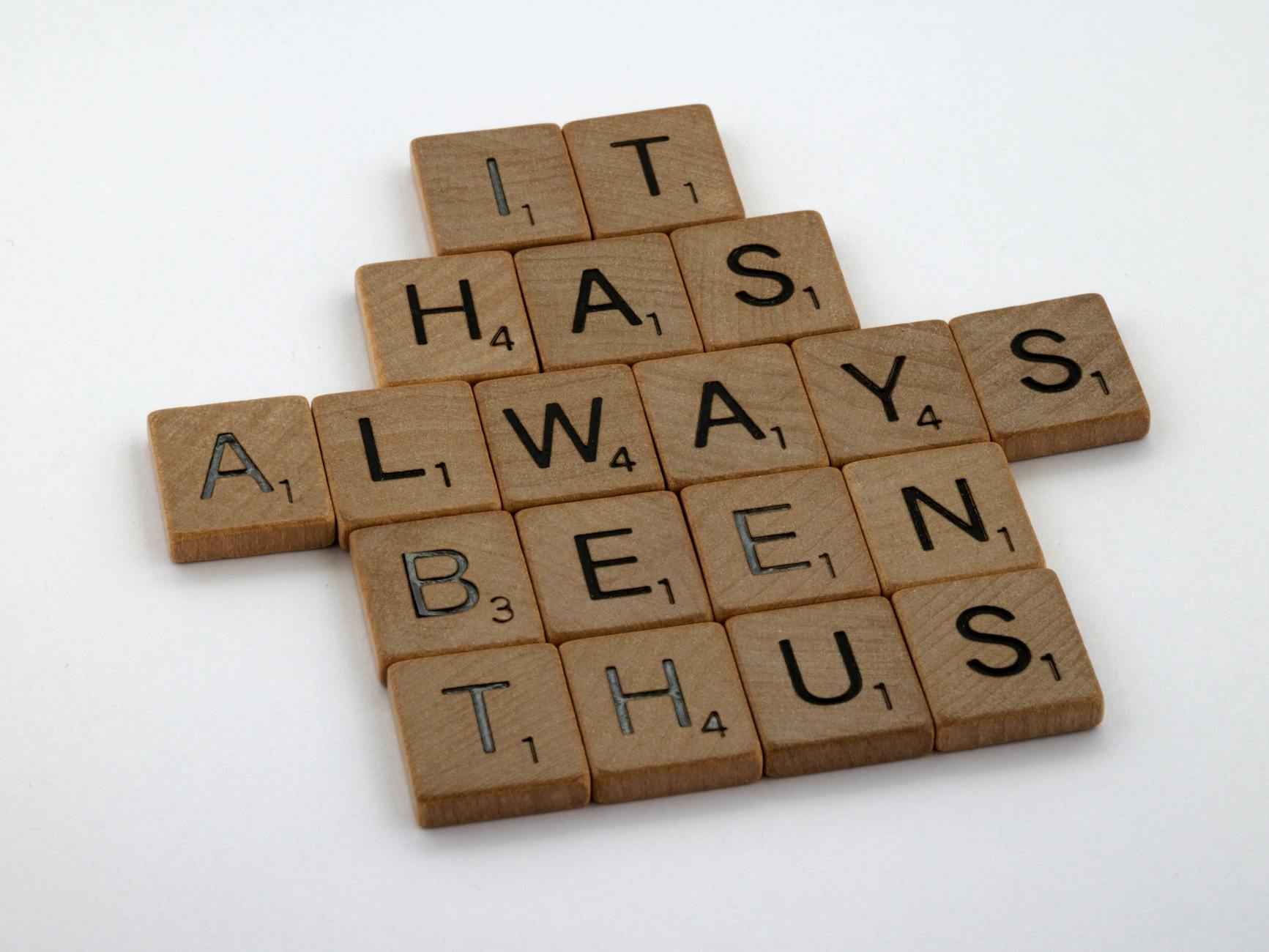
Understanding Vault Opener Puzzles
Vault opener puzzles in the New York Times crossword are not just ordinary challenges; they are intricate brain teasers that require a blend of strategy, patience, and a sharp eye for detail. These unique puzzles often leave solvers scratching their heads, but with the right approach, they can transform from daunting obstacles to rewarding accomplishments. This guide will delve into the essence of vault opener puzzles, offering you essential strategies and insights to navigate these enigmatic challenges effectively.
At their core, vault opener puzzles are designed to test your cognitive abilities and problem-solving skills. Unlike standard crossword clues, these puzzles often involve layered meanings, requiring solvers to think outside the box. A keen eye for detail is crucial, as the clues may contain subtle hints that can easily be overlooked. For instance, a clue might play on words or employ a pun, making the solving process feel like a thrilling treasure hunt.
Imagine sitting at your kitchen table, coffee in hand, as you stare at a particularly perplexing clue. You might feel a sense of frustration creeping in, but remember that this is part of the journey. Each clue is a stepping stone, leading you closer to the ultimate goal of completing the puzzle. Embracing this challenge can turn a moment of despair into a delightful “aha!” moment when you finally crack the code.
To enhance your chances of success, it’s essential to employ effective strategies. One of the most beneficial approaches is to familiarize yourself with common crossword clues and their nuances. Many solvers find that certain types of clues recur frequently, such as those involving cultural references, historical figures, or popular phrases. By building a mental library of these clues, you can decipher answers more quickly, making the solving process smoother and more enjoyable.
Additionally, recognizing recurring themes in vault opener puzzles can provide valuable context. For example, if a puzzle often incorporates literary references, knowing a bit about classic literature can give you a significant advantage. You might find yourself recalling a quote or a character that fits perfectly into the grid, allowing you to fill in answers with confidence.
| Common Types of Clues | Examples |
|---|---|
| Puns | “Time flies like an arrow” (answer: “fruit flies”) |
| Wordplay | “Notable figure in a circus?” (answer: “ringmaster”) |
| Cultural References | “Famous detective created by Arthur Conan Doyle” (answer: “Holmes”) |
A robust vocabulary is a cornerstone of crossword-solving success. The more words you know, the easier it will be to tackle even the most challenging clues. Consider setting aside time each week to learn new words or phrases, perhaps through reading or engaging with word games. This practice not only enriches your vocabulary but also enhances your overall problem-solving skills.
In addition to expanding your vocabulary, leveraging tools and resources can significantly improve your crossword-solving experience. Joining online crossword communities can provide camaraderie and shared insights. These platforms allow solvers to exchange tips, discuss strategies, and even celebrate victories together. You might find a fellow enthusiast who shares your passion for puzzles, creating a sense of belonging in the crossword community.
Moreover, utilizing crossword-solving apps can be a game-changer. These apps often feature hints and solutions that can help you navigate tricky puzzles. While some purists may argue against using these tools, they can serve as a helpful resource during particularly challenging sessions, allowing you to maintain your momentum without getting stuck.
As you continue to practice with past vault opener puzzles, you will notice your skills sharpening over time. Regular engagement with these puzzles not only builds your confidence but also enhances your problem-solving abilities. Consider setting a routine for practice, perhaps dedicating a few evenings each week to tackle a new puzzle. This consistent approach fosters improvement and allows you to track your progress.
Finally, take the time to analyze completed puzzles. Reflecting on your solving patterns can provide valuable insights into your strengths and areas for improvement. You may discover that certain types of clues consistently trip you up, prompting you to focus your learning efforts in those areas. Celebrating small victories along the way, such as solving a particularly challenging clue or completing a puzzle in record time, will keep you motivated and engaged.
In conclusion, vault opener puzzles in the NYT crossword present a unique and rewarding challenge for enthusiasts. By employing effective strategies, building your vocabulary, and utilizing available resources, you can enhance your crossword-solving skills and transform frustration into accomplishment. So, grab your pencil, embrace the challenge, and enjoy the journey of solving these captivating puzzles!
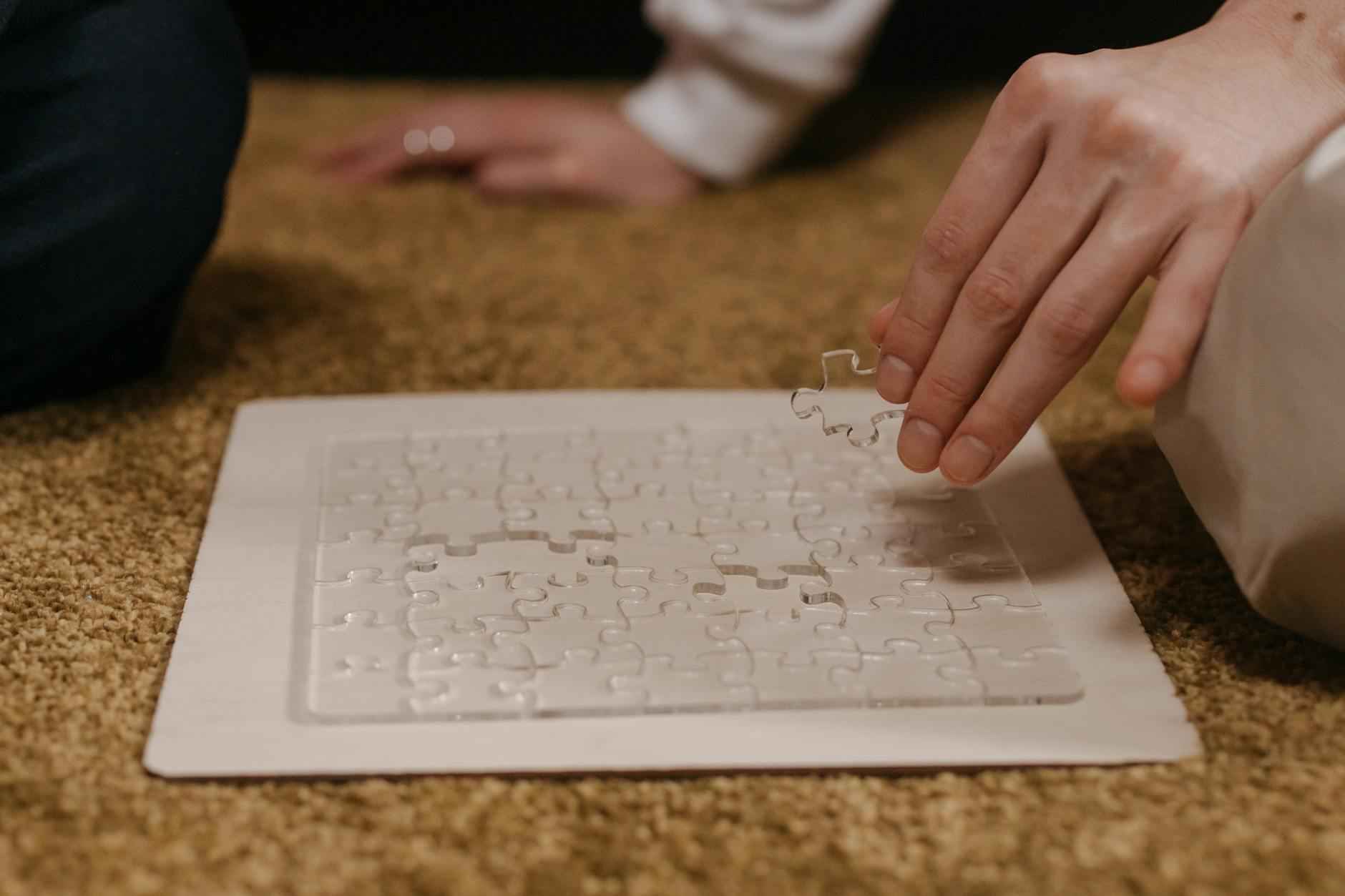
Essential Strategies for Success
When it comes to solving the notoriously challenging vault opener puzzles found in the New York Times crossword, many enthusiasts often feel a mix of excitement and trepidation. These puzzles, known for their intricate clues and clever wordplay, can sometimes leave even the most seasoned solvers feeling stumped. However, with the right approach and a few effective strategies, you can enhance your chances of success. By transforming the frustration often associated with these puzzles into a sense of accomplishment, you can not only improve your solving skills but also enjoy the process much more.
One of the most crucial skills in tackling vault opener puzzles is developing a keen understanding of the various types of clues that frequently appear. Crossword clues can range from straightforward definitions to complex wordplay that requires lateral thinking. For instance, puns and double meanings are common in these puzzles, often leading solvers down unexpected paths. Familiarizing yourself with the common types of clues can significantly speed up your solving process.
Consider creating a mental or physical list of common clue types:
- Synonyms: Clues that ask for a word with a similar meaning.
- Antonyms: Clues that require the opposite meaning.
- Homophones: Words that sound alike but have different meanings.
- Abbreviations: Clues that hint at shortened forms of words.
By recognizing these patterns, you can approach each puzzle with greater confidence, knowing what to expect and how to think creatively about the answers.
A robust vocabulary is an invaluable asset in the world of crossword puzzles. The more words you know, the easier it will be to fill in those tricky squares. To enhance your vocabulary, consider reading widely across various genres, including fiction, non-fiction, and even poetry. Each genre offers unique words and phrases that can enrich your understanding and usage of language.
Moreover, keeping a small notebook or digital document where you jot down unfamiliar words and their meanings can be beneficial. Reviewing this list periodically will help reinforce your memory. As you build your vocabulary, you may find that certain words or phrases frequently pop up in puzzles, providing you with a significant advantage.
Additionally, engaging with crossword-specific resources, such as blogs or podcasts dedicated to puzzle solving, can offer insights into common themes and frequently used clues, further enhancing your expertise.
In today’s digital age, crossword enthusiasts have access to a plethora of tools and resources that can aid in solving puzzles. Online crossword communities are a fantastic way to connect with fellow solvers who share your passion. These platforms often provide forums where you can discuss strategies, share tips, and even collaborate on particularly challenging puzzles.
Moreover, various apps and software designed for crossword solving can be incredibly helpful. These tools often feature built-in dictionaries and databases that can assist you when you hit a mental block. For instance, if you’re stuck on a clue, you can input the letters you already have, and the app can suggest possible answers based on your entries.
However, while these tools can be helpful, it’s important to strike a balance. Relying too heavily on them may hinder your development as a solver. Instead, use them as a supplementary resource, allowing you to learn and grow while still enjoying the challenge of the puzzle.
As you explore these various strategies and resources, remember that practice makes perfect. Regularly tackling past vault opener puzzles not only sharpens your skills but also helps you recognize patterns and common themes that can make future puzzles easier to solve.
After completing a puzzle, take the time to analyze your approach. What strategies worked well? Where did you struggle? This reflective practice will help you identify areas for improvement, making you a more effective solver over time. Setting a consistent routine for practicing puzzles can also foster a sense of progress and achievement, allowing you to celebrate small victories along the way.
In conclusion, while vault opener puzzles may present a formidable challenge, employing effective strategies can significantly enhance your crossword-solving experience. By mastering clue interpretation, expanding your vocabulary, and utilizing available resources, you can turn the daunting task of solving these puzzles into an enjoyable and rewarding endeavor. Remember, every puzzle solved is a step closer to becoming a more skilled and confident solver.
Familiarity with Crossword Clues
When it comes to solving crossword puzzles, especially the challenging vault opener types found in the New York Times, understanding the intricacies of common clues can significantly enhance your experience. These puzzles often present a delightful mix of wordplay, puns, and clever misdirections that can either stump you or lead to exhilarating moments of discovery. By delving into the nuances of crossword clues, you can not only speed up your solving time but also cultivate a deeper appreciation for the art of crossword construction.
Crossword clues are not just random words; they are carefully crafted hints that require a keen eye and a playful mind to unravel. Familiarizing yourself with different types of clues can be a game changer. For instance, homophones—words that sound alike but have different meanings—are often employed. A clue like “sounds like a type of tree” might lead you to the answer “palm.” Similarly, clues that involve anagrams can twist your perception; “silent” could rearrange to yield “listen.”
Moreover, abbreviations frequently pop up, particularly in themed puzzles. When you see “abbr.” or “initially,” it’s a cue to think of shorter forms of words. For example, “doctor” might become “Dr.” Understanding these patterns allows you to approach clues with a strategic mindset, improving your overall solving efficiency.
Another essential aspect of crossword solving is recognizing recurring themes within puzzles. The New York Times often features themed puzzles that revolve around a central idea, be it a holiday, a historical event, or a pop culture reference. When you identify a theme, you can often predict the answers to related clues. For instance, if the theme revolves around “summer,” you might encounter clues related to “beach,” “vacation,” or “sun.” This thematic recognition not only makes solving easier but also adds a layer of enjoyment as you connect the dots.
Additionally, it’s beneficial to keep a mental or physical list of common crossword themes. Here’s a quick table to illustrate some popular themes and their associated clues:
| Theme | Example Clue | Possible Answer |
|---|---|---|
| Colors | “Primary color” | RED |
| Movies | “Oscar-winning film of 1994” | FORREST GUMP |
| Geography | “Capital of France” | PARIS |
By keeping track of these themes, you can sharpen your intuition and make educated guesses when faced with tricky clues.
A robust vocabulary is your best ally in the world of crossword puzzles. The more words you know, the easier it becomes to tackle even the most obscure clues. One effective way to expand your vocabulary is through reading widely. Whether it’s literature, science articles, or even poetry, exposure to different writing styles and terminologies can introduce you to new words that may appear in puzzles.
Moreover, consider keeping a dedicated notebook for words you encounter during your crossword sessions. Each time you face a clue you can’t solve, jot down the answer along with its definition. Over time, this practice will enrich your vocabulary and improve your solving skills.
In addition to traditional vocabulary building, engaging with crossword apps can also be beneficial. Many of these apps provide daily puzzles with varying difficulty levels, allowing you to practice regularly and track your progress. This consistent engagement not only hones your skills but also helps you develop a deeper understanding of clue construction.
As you immerse yourself in the world of crosswords, remember that every puzzle is a new adventure waiting to be explored. With a little patience and practice, you’ll find that the once-daunting vault opener puzzles transform into delightful challenges that stimulate your mind and bring a sense of accomplishment with each solved clue.
Types of Clues to Watch For
When diving into the world of vault opener puzzles, one quickly realizes that they present a delightful challenge, often requiring a mix of creativity and analytical thinking. These puzzles, particularly popular in the New York Times crossword, are notorious for their clever clues that can leave even seasoned solvers scratching their heads. Among the most intriguing aspects of these puzzles are the types of clues that frequently appear, such as puns and wordplay. While they may initially seem perplexing, they can also lead to a profound sense of achievement once solved.
Wordplay is the art of manipulating language in a playful manner, and it is a hallmark of vault opener puzzles. For instance, a clue might read, “Time flies when you’re having fun,” which could lead to the answer “FLY.” This type of clue requires solvers to think outside the box, connecting the metaphorical meaning of the phrase with a literal interpretation. The beauty of wordplay lies in its duality; it can be both a riddle and a revelation, challenging players to engage their minds in a unique way.
Consider the experience of a crossword enthusiast who once faced a particularly tricky vault opener puzzle. The clue “A hot drink that’s hard to swallow” led to the answer “TEA,” but only after a moment of realization that the clue was not just about the beverage itself but also about its phonetic play. This moment of clarity, though fleeting, ignited a passion for solving that has lasted for years. Such stories are common among crossword lovers, illustrating how wordplay can transform a simple puzzle into a memorable experience.
Another essential strategy for tackling vault opener puzzles is recognizing common patterns in clue structures. Many clues follow a predictable format, often incorporating synonyms, antonyms, or homophones. For example, a clue like “Not quite a full moon” could lead to the answer “WAN,” playing on the idea of something that is less than whole. Understanding these patterns can significantly enhance your solving skills, allowing you to anticipate answers based on context rather than relying solely on guesswork.
Moreover, it’s crucial to remember that some clues may employ cultural references or idiomatic expressions. A clue such as “A place to bury the hatchet” might lead to the answer “PEACE,” utilizing a common saying that conveys a deeper meaning. By familiarizing yourself with such expressions, you can unlock a treasure trove of answers that might otherwise remain elusive.
Puns, in particular, are a delightful yet challenging aspect of vault opener puzzles. They often require a solver to think laterally, connecting seemingly unrelated ideas. A classic example might be a clue like “What a fish might say when it hits a wall?” leading to the answer “DAM.” This type of humor not only makes the puzzle more enjoyable but also fosters a sense of community among solvers who appreciate the wit involved.
It’s worth noting that embracing the challenge of puns can lead to significant breakthroughs in solving. When faced with a pun-based clue, take a moment to step back and consider all possible interpretations. This strategy can help you unlock answers that might not be immediately apparent. Additionally, sharing these moments of discovery with fellow solvers can deepen your appreciation for the craft of puzzle-making and solving.
In conclusion, the world of vault opener puzzles is rich with opportunities for engagement and discovery. By honing your skills in recognizing wordplay, understanding clue structures, and embracing the challenge of puns, you can transform the often daunting task of solving into a rewarding journey. Each puzzle solved is not just a victory over a set of clues but also an affirmation of your growing expertise in this captivating pastime. As you immerse yourself in these puzzles, remember that the joy lies not only in the answers but also in the cleverness of the clues that lead you there.
Common Themes in Puzzles
When delving into the intricate world of vault opener puzzles in the NYT crossword, one quickly realizes that patterns and themes play a crucial role in solving these enigmatic challenges. Recognizing these recurring themes not only enhances your understanding of the puzzles but also equips you with the ability to anticipate potential answers based on established patterns. This skill can transform your approach from one of confusion to one of confidence, making the once-daunting task of solving these puzzles a more manageable and enjoyable experience.
As any seasoned crossword enthusiast will tell you, the key to unlocking the mysteries of vault opener puzzles lies in your ability to identify and understand the themes woven throughout the clues. These themes often manifest in various forms, such as puns, cultural references, or even common phrases that have been cleverly twisted to fit the puzzle’s structure. For instance, a puzzle may incorporate a theme centered around a specific holiday, prompting clues that relate to that time of year, such as “Eggs hidden in grass” for Easter or “Heart-shaped treats” for Valentine’s Day.
Moreover, many puzzles utilize a consistent format or structure that can give you hints about the answers. Familiarizing yourself with these patterns can save you time and effort. For example, if you notice that a series of clues all relate to a particular historical event, you can narrow down your answers based on what you know about that event. This recognition of themes not only aids in solving individual puzzles but also enhances your overall crossword-solving skills.
In the realm of vault opener puzzles, certain themes tend to recur frequently, and being aware of these can significantly improve your solving efficiency. Below is a list of common themes to keep an eye out for:
- Wordplay and Puns: Many clues play with language, requiring you to think outside the box. For instance, a clue like “Time flies” may lead you to the answer “FLIES” instead of something related to time.
- Cultural References: These can range from music and film to literature. A clue referencing a famous song might require you to recall lyrics or the artist’s name.
- Homophones: Clues that sound alike but have different meanings can be tricky. For example, “Read” could also refer to “Red,” leading to clever answers.
- Historical Events: Knowledge of history can provide context for clues that reference significant dates or figures.
Recognizing these themes not only aids in solving the current puzzle but also builds a mental library of clues and answers that can be beneficial for future puzzles. The more you practice identifying these themes, the more intuitive your solving process will become.
To effectively harness the power of theme recognition, consider employing a few strategies that can enhance your crossword-solving skills:
1. **Practice Regularly:** The more puzzles you tackle, the better you will become at identifying themes. Set aside time each week to work on crosswords, gradually increasing the difficulty level.2. **Join a Crossword Community:** Engaging with fellow enthusiasts can provide insights into common themes and strategies that you might not have considered.3. **Keep a Puzzle Journal:** Documenting puzzles you’ve solved, along with their themes and your thought processes, can help reinforce your learning.4. **Analyze Mistakes:** When you encounter a clue you couldn’t solve, take the time to research it afterward. Understanding why an answer fits can be invaluable for future puzzles.
By implementing these strategies, you can build a robust framework for recognizing themes, thereby enhancing your overall crossword-solving experience. The journey of solving vault opener puzzles is not just about finding the right answers; it’s also about enjoying the process of discovery and learning. With practice, patience, and a keen eye for themes, you can transform your approach to these puzzles, making them not just a challenge but a source of joy and satisfaction.
Building Your Vocabulary
For crossword enthusiasts, a rich vocabulary is not just a luxury; it is a vital tool that can transform a puzzling challenge into an enjoyable pastime. The ability to draw from a diverse word bank can significantly enhance your problem-solving skills, especially when faced with the most intricate clues. Imagine sitting down with a cup of coffee, the morning sun streaming through the window, and a crossword puzzle laid out before you. As you begin to tackle the clues, you realize that the words you’ve collected over time are your greatest allies in this intellectual endeavor.
In the realm of crossword puzzles, having a broad vocabulary is akin to having a well-stocked toolbox. Each word you learn adds another tool to your kit, enabling you to tackle a wider range of clues. For instance, knowing synonyms, antonyms, and even obscure words can give you the edge over those who rely solely on common vocabulary. It’s not just about knowing the meanings but also understanding the nuances of words and their usage in different contexts. This depth of knowledge can be particularly beneficial in vault opener puzzles, where clever wordplay and puns are often employed.
Consider the experience of a seasoned crossword solver who recalls the thrill of finally cracking a particularly challenging clue. “I remember the clue was ‘A small, mischievous creature’ and I was stumped,” she shares. “But then I remembered the word ‘imp’ from a fantasy novel I had read years ago. It felt like a light bulb went off, and I filled it in with such satisfaction!” This anecdote highlights how a robust vocabulary can lead to moments of triumph in the face of difficulty.
Expanding your vocabulary doesn’t have to be a daunting task. There are numerous enjoyable ways to enhance your word bank. One effective method is to engage with literature. Reading a variety of genres—from classic literature to contemporary novels—exposes you to different writing styles and vocabularies. Keep a notebook handy to jot down unfamiliar words, and make it a habit to look up their meanings. You might even find that some of these words pop up in crossword clues!
Another engaging way to build your vocabulary is through word games. Whether it’s Scrabble, Boggle, or even mobile apps designed for vocabulary building, these games offer a fun and interactive way to learn new words. By challenging yourself to use these words in sentences or even in conversations, you reinforce your learning and make the words stick.
Additionally, consider joining a local book club or a language exchange group. These communities can provide both motivation and support. Engaging in discussions about books or language can introduce you to new words and phrases that you might not encounter otherwise. Plus, the camaraderie of fellow word lovers can make the process all the more enjoyable.
In today’s digital age, countless resources are available to help you expand your vocabulary. Online platforms such as vocabulary-building websites and mobile applications offer structured lessons, quizzes, and games tailored to different skill levels. You can set daily goals and track your progress, which adds an element of accountability and fun to your learning journey.
Moreover, consider subscribing to a “word of the day” service. These services deliver a new word to your inbox each day, complete with definitions and examples of usage. By incorporating just one new word into your daily conversations, you’ll find that your vocabulary grows exponentially over time.
Lastly, don’t underestimate the power of crossword puzzles themselves! As you solve, take note of the clues that stump you and look up the answers. This practice not only helps you learn new words but also reinforces your understanding of how they are used in context.
In conclusion, building a robust vocabulary is an ongoing journey that can significantly enhance your crossword-solving abilities. By actively engaging with words through reading, games, and community interactions, you can enrich your language skills and enjoy the process. Remember, every word learned is a step closer to mastering those challenging vault opener puzzles and enjoying the thrill of solving even the toughest clues. So, grab that pencil, dive into your next crossword, and let your expanding vocabulary lead you to victory!
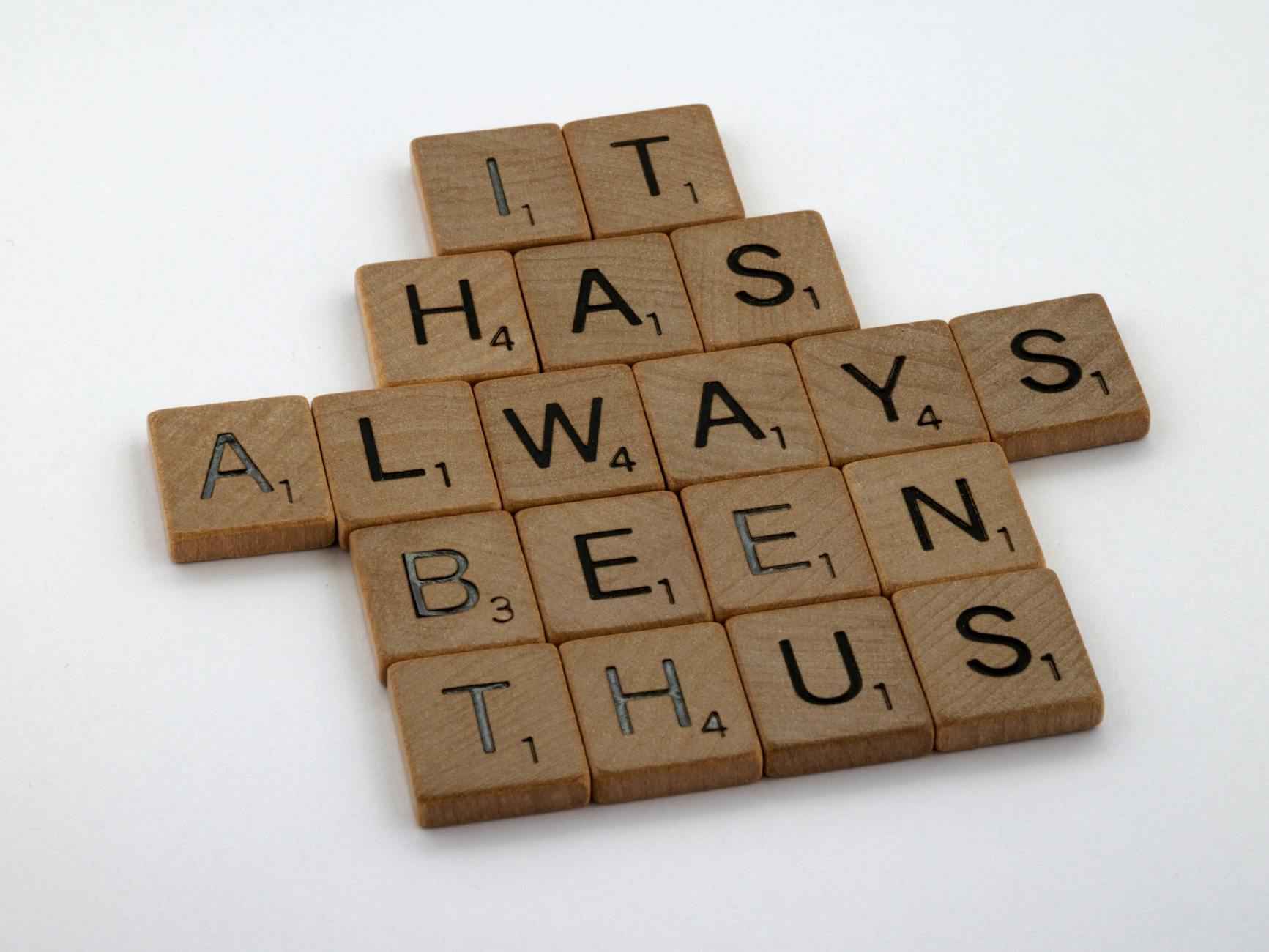
Tools and Resources for Solvers
Crossword puzzles can be both a delightful pastime and a formidable challenge. When faced with particularly tricky clues, many solvers find themselves grappling with frustration. However, the journey of solving can be significantly enhanced by making use of various tools and resources available today. By leveraging these resources, you not only gain additional support but also enrich your overall crossword-solving experience. This guide will explore how different tools can transform your approach to difficult puzzles, helping you navigate through the complexities of vault opener puzzles in the NYT crossword.
In the digital age, crossword enthusiasts have access to a myriad of apps and online resources designed to assist solvers. These tools can be a game-changer when you find yourself stuck on a particularly challenging clue. For instance, crossword-solving apps like Crossword Solver or WordFinder allow you to input letters you already have, offering potential answers based on your input. This can be incredibly helpful for those moments when your brain seems to draw a blank.
Additionally, websites such as Crossword Nexus and Reddit’s crossword community provide platforms where solvers can share hints, tips, and even their own experiences with specific puzzles. Engaging with these communities not only fosters a sense of camaraderie but can also expose you to new strategies and insights that may not have crossed your mind. After all, every solver has their unique approach, and learning from others can significantly enhance your skills.
Another essential aspect of tackling difficult crossword puzzles is a well-rounded vocabulary. A rich word bank can help you recognize answers more quickly, especially in vault opener puzzles that often play on words or require lateral thinking. Consider dedicating some time each week to read diverse materials—books, articles, or even poetry. This not only expands your vocabulary but also familiarizes you with different styles of writing and common phrases that frequently appear in crosswords.
Moreover, keeping a personal crossword journal can be beneficial. Every time you encounter a word or clue that stumps you, jot it down along with its meaning or context. This practice not only reinforces your learning but also creates a personalized reference guide that you can revisit when preparing for future puzzles.
Regular practice is crucial for improving your crossword-solving skills. Set aside dedicated time each week to tackle past vault opener puzzles. This not only helps you become familiar with their unique structure but also allows you to track your progress over time. Analyzing completed puzzles can provide valuable insights into your solving patterns, helping you identify areas for improvement and strategies that work best for you.
To further enhance your practice sessions, consider establishing a routine. Whether it’s a quiet morning with coffee or a cozy evening with a glass of wine, find a time when you can focus without distractions. This consistency will not only help you build your skills but also create a ritual that you look forward to, making the process more enjoyable.
As you engage with these resources and strategies, remember to be patient with yourself. Crossword solving is as much about the journey as it is about the destination. Celebrate your victories, no matter how small, and don’t hesitate to seek help when needed. Whether it’s asking a friend for a hint or consulting an online resource, acknowledging when you need support is a vital part of the learning process.
In conclusion, leveraging tools and resources can significantly enhance your crossword-solving experience. By embracing technology, expanding your vocabulary, and engaging in regular practice, you can transform the way you approach even the most challenging vault opener puzzles. Remember, the world of crosswords is vast and filled with opportunities for growth and enjoyment. So grab your pencil, open your favorite app, and dive into the delightful world of crossword puzzles with renewed confidence and enthusiasm!
Online Crossword Communities
In the world of crossword puzzles, the journey can often feel solitary, with each clue presenting a unique challenge that requires both skill and patience. However, when you immerse yourself in , the experience transforms into a collaborative adventure. These vibrant networks not only foster camaraderie but also provide a treasure trove of insights that can significantly enhance your crossword-solving skills.
Imagine sitting at your kitchen table, pencil in hand, staring at a particularly vexing clue. You’re not alone in this struggle; thousands of others are navigating the same puzzle, often feeling the same mix of frustration and determination. Online communities, such as forums and social media groups, allow you to connect with like-minded individuals who share your passion for crosswords. Engaging with others can provide a sense of belonging and motivation, reminding you that every crossword enthusiast faces their own set of challenges.
One of the most rewarding aspects of these communities is the opportunity to share strategies and tips. For instance, seasoned solvers often post their approaches to specific clues or discuss the themes prevalent in recent puzzles. This exchange of ideas not only enriches your solving techniques but also exposes you to different styles and perspectives. You might discover that a clue you found impossible was solved by someone else with a simple twist of thought, sparking an “aha!” moment for you.
Online crossword communities serve as a platform for learning and growth. Many members are eager to share their knowledge, whether it’s about common crossword conventions or the latest trends in puzzle construction. For example, a recent discussion in one of the forums highlighted the increasing use of pop culture references in puzzles. By participating in these conversations, you can stay informed about evolving puzzle styles, which can be crucial for tackling modern crosswords effectively.
Moreover, these communities often host friendly competitions or collaborative solving sessions. Participating in a timed challenge with others can be exhilarating and can also push you to think more quickly and creatively. The shared excitement of solving a particularly tough puzzle can create lasting bonds, turning acquaintances into friends. One member shared, “I joined a group challenge last month, and we ended up solving a puzzle that had stumped us individually for days. The thrill of collective success was unforgettable!”
Crossword solving can sometimes feel overwhelming, especially when faced with a particularly challenging puzzle. During such times, the support from an online community can be invaluable. Members often rally to offer encouragement and advice, reminding you that it’s perfectly normal to hit a wall. This sense of support is often accompanied by humor, as solvers share their funniest moments of failure and triumph alike. “I once spent an hour trying to fit ‘elephant’ into a four-letter space,” one user recounted, eliciting laughter from the group.
Additionally, many communities have resources like guides, tutorials, and even live discussions where you can ask for help in real-time. This accessibility to immediate assistance can alleviate the feelings of isolation that often accompany challenging puzzles. You’ll find that many members are more than willing to share their favorite resources, such as apps or websites that can help you improve your skills.
As you engage with these communities, you’ll also notice a shift in your own approach to puzzles. The insights you gain from others can lead to improved problem-solving strategies and a more confident mindset. You’ll begin to recognize patterns, anticipate clues, and develop a more robust vocabulary—all essential skills for any crossword enthusiast.
Ultimately, joining online crossword communities is not just about solving puzzles; it’s about building connections, sharing laughter, and growing together as a collective of passionate solvers. Whether you’re a novice or a seasoned expert, these communities offer a wealth of knowledge and support that can make your crossword journey not only more enjoyable but also profoundly enriching.
Apps and Crossword Solving Software
In the world of crossword puzzles, particularly in the challenging vault opener sections of the NYT crossword, solvers often find themselves facing a mental block. This is where crossword-solving apps come into play, acting as a lifeline to help navigate through the tricky clues and intricate wordplay. These digital tools not only provide answers but can also enhance your overall solving experience, turning what could be a frustrating endeavor into a more enjoyable and rewarding activity.
As technology evolves, so do the resources available to crossword enthusiasts. Crossword-solving apps have become increasingly popular, offering features that allow users to quickly find answers and explore clues in depth. These apps can be particularly useful for those who may be new to the game or for seasoned solvers looking to refine their skills. For instance, when faced with a clue that seems impossible, a quick search can reveal potential answers, allowing you to keep the momentum going rather than getting stuck. This immediate access to information can transform your crossword-solving experience.
Moreover, many of these apps come equipped with a variety of functionalities, such as:
- Hint Systems: Providing subtle clues to guide you towards the answer without giving it away entirely.
- Word Suggestions: Offering a list of potential words based on the letters you already have filled in.
- Community Features: Connecting you with other solvers for tips and shared insights.
Using crossword-solving apps is not just about finding answers; it’s about enhancing your personal solving style. Many apps allow you to track your progress, save puzzles, and revisit them later. This feature is particularly beneficial for those who want to learn from their mistakes. For example, after completing a challenging puzzle, you can go back and analyze which clues tripped you up and why. Over time, you can build a stronger understanding of common themes and clue types, making you a more adept solver.
Imagine sitting in a cozy café, sipping your favorite coffee, and working on a particularly tough crossword. You hit a wall with one clue, and instead of feeling frustrated, you pull out your phone, open your crossword app, and find a hint that nudges you in the right direction. This seamless integration of technology into your solving routine not only alleviates stress but also fosters a sense of accomplishment as you progress through the puzzle.
In addition to the individual benefits of using crossword-solving apps, there’s a vibrant community aspect that can significantly enhance your experience. Many apps feature forums or social components where users can share tips, tricks, and their favorite solving strategies. This collaborative environment allows solvers to learn from one another, creating a sense of camaraderie among crossword enthusiasts. Engaging with others who share your passion can lead to valuable insights and new approaches that you might not have considered on your own.
For instance, one user might share a unique method for tackling pun-based clues, while another might recommend specific apps that have helped them improve their vocabulary. These shared experiences can make the often solitary activity of crossword solving feel more connected and communal.
Furthermore, many crossword-solving apps include features that allow you to challenge friends or join competitions, adding an extra layer of fun and motivation. Whether you’re racing against the clock or simply enjoying a friendly rivalry, these elements can elevate your puzzle-solving experience.
In conclusion, utilizing crossword-solving apps is an invaluable strategy for both novice and experienced solvers alike. They not only provide quick answers during challenging moments but also foster a deeper understanding of the puzzle-solving process. By embracing technology, personalizing your experience, and engaging with a community of fellow enthusiasts, you can transform your crossword-solving journey into a fulfilling and enjoyable adventure.
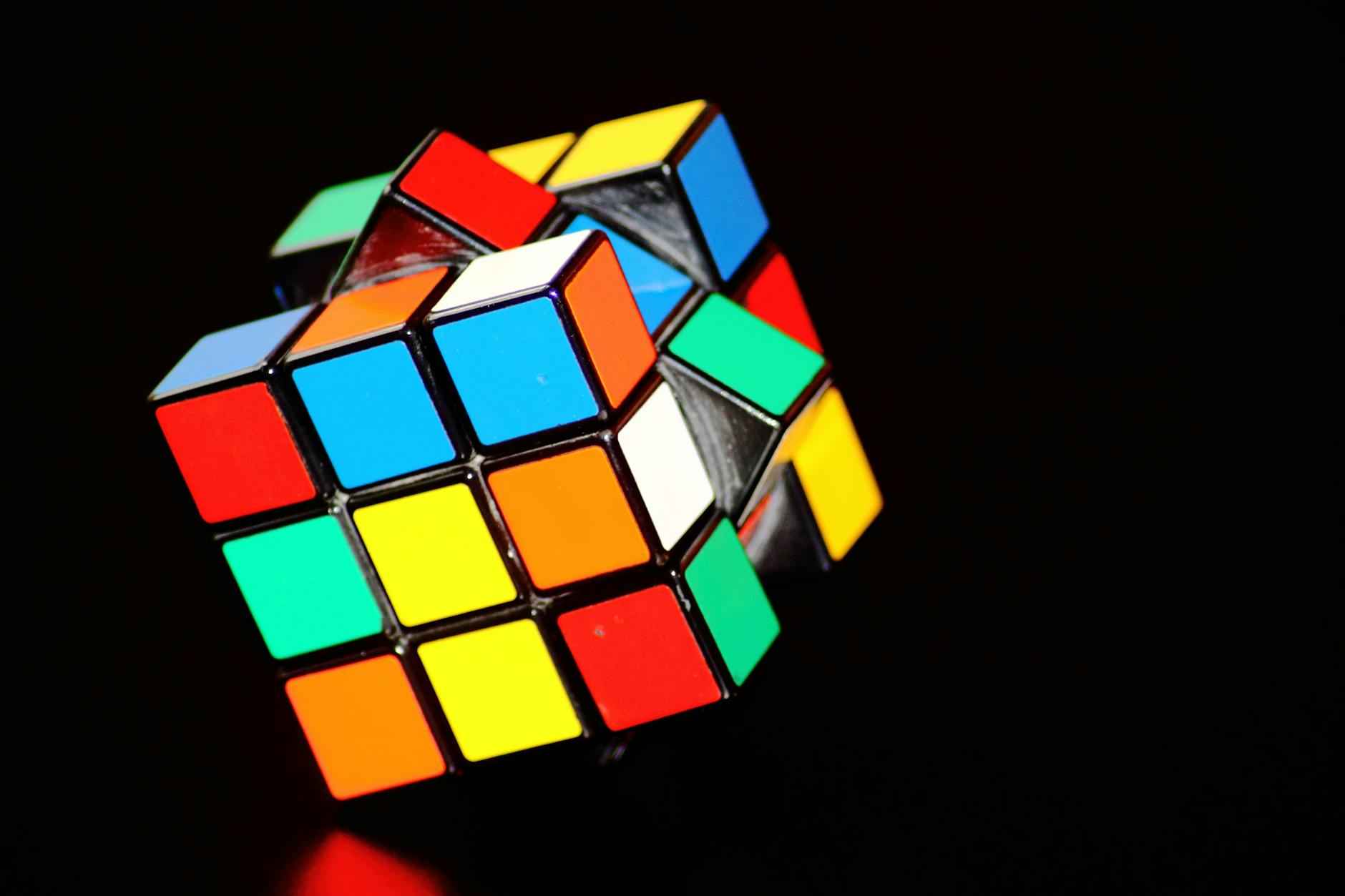
Practicing with Past Puzzles
Engaging with past vault opener puzzles in the NYT crossword can be a game-changer for aspiring solvers. These puzzles, renowned for their complexity, can initially seem intimidating. However, with consistent practice, you can transform your approach, sharpening your skills and bolstering your confidence. Imagine sitting down with a cup of coffee, the morning sun streaming through your window, and a challenging puzzle laid out before you. Instead of feeling overwhelmed, you feel prepared and ready to tackle the clues that once stumped you.
Regularly revisiting past vault opener puzzles not only enhances your problem-solving abilities but also builds a solid foundation of knowledge about the types of clues and answers typically encountered. Each puzzle serves as a mini-lesson, revealing patterns and strategies that can be applied to future challenges. This practice can lead to a significant increase in your solving speed and accuracy.
Consider it akin to training for a marathon. Just as athletes must log miles to build endurance, crossword enthusiasts must engage with puzzles to hone their skills. Over time, you’ll notice that the once-daunting clues become more familiar and manageable. This gradual mastery is not just about solving puzzles; it’s about cultivating a mindset that embraces challenges and seeks solutions.
Establishing a regular routine for practicing crossword puzzles can significantly impact your growth as a solver. Aim to set aside a specific time each day dedicated to working on past vault opener puzzles. This consistency will help you track your progress and recognize improvements over time. You might start with just 15 minutes a day, gradually increasing as you become more comfortable.
To make your practice more effective, consider keeping a journal or log of the puzzles you’ve completed. In this log, you could note down the clues that challenged you, the strategies you employed, and any new vocabulary you encountered. This reflective practice not only reinforces your learning but also highlights your evolution as a solver. Here’s a simple table to illustrate how you might structure your practice log:
| Date | Puzzle Title | Challenging Clues | Strategies Used | New Vocabulary |
|---|---|---|---|---|
| 2023-10-01 | Vault Opener #1 | Clue 5 Across | Looked for synonyms | Ephemeral |
| 2023-10-02 | Vault Opener #2 | Clue 10 Down | Used wordplay | Quixotic |
After completing a puzzle, take a moment to analyze your performance. What clues did you find easy? Which ones stumped you? By reflecting on your answers and the thought processes behind them, you can identify patterns in your solving style. Perhaps you tend to overlook certain types of clues or struggle with specific themes. Understanding these tendencies allows you to focus your practice on areas that need improvement.
Additionally, consider discussing your completed puzzles with fellow crossword enthusiasts. Engaging in conversations about different solving techniques can provide new insights and strategies that you may not have considered. Online forums and social media groups dedicated to crossword solving can be invaluable resources for sharing experiences and learning from others.
As you practice, remember to celebrate your victories, no matter how small. Each completed puzzle is a step forward in your journey as a solver. Over time, you will find that your confidence grows, and the puzzles that once seemed insurmountable become just another challenge to conquer. Embrace the process, and enjoy the satisfaction that comes from solving even the most difficult vault opener puzzles.
Analyzing Completed Puzzles
When it comes to solving crossword puzzles, especially the notorious vault opener puzzles in the NYT, understanding your own solving patterns can be a game changer. Reviewing completed puzzles not only allows you to reflect on your past performances but also provides a roadmap for future success. It’s akin to watching game footage for a sports team; you can identify what strategies worked, what didn’t, and where you can improve. This self-analysis is crucial for anyone looking to enhance their crossword-solving skills.
Taking the time to analyze your completed puzzles can reveal significant insights into your solving style. Each puzzle you finish is a snapshot of your thought processes, strengths, and areas in need of improvement. For instance, you might notice that you consistently struggle with certain types of clues, such as those involving obscure trivia or wordplay. Recognizing these patterns enables you to focus your practice on specific areas, transforming weaknesses into strengths.
Moreover, this practice can enhance your overall enjoyment of crossword solving. Rather than viewing puzzles solely as a challenge, you start to see them as opportunities for growth. The more you engage with your completed puzzles, the more you can appreciate the journey of learning and mastering new techniques.
To make the most of your puzzle reviews, consider implementing a structured approach. Here’s a simple framework you can follow:
| Step | Description |
|---|---|
| 1. Review Your Answers | Go through each completed puzzle and check your answers, noting any mistakes or guesses that led you astray. |
| 2. Identify Patterns | Look for recurring themes or types of clues that you find challenging. This could be anything from specific words that trip you up to styles of clues that you misinterpret. |
| 3. Research Unknowns | For any clues you got wrong, take the time to research the correct answers. Understanding why an answer fits can deepen your knowledge and improve future performance. |
| 4. Document Insights | Keep a journal or a digital document where you note your findings. This can be a valuable resource for future reference. |
By following these steps, you can create a robust learning loop that not only enhances your skills but also keeps you motivated. Remember, the goal is not just to solve puzzles but to enjoy the process of learning and improving.
Incorporating a personal touch into your analysis can make the process more engaging. Consider keeping a crossword journal where you document not just your answers but also your feelings about each puzzle. Did a particular clue make you laugh? Did you feel a rush of triumph when you solved a tricky section? Capturing these emotions can make the practice feel more rewarding.
Additionally, sharing your experiences with fellow crossword enthusiasts can provide fresh perspectives. Engaging in discussions about your completed puzzles can lead to new strategies and insights. You might find that others have faced similar challenges and have developed unique solutions that you hadn’t considered.
As you continue to analyze your completed puzzles, remember that improvement takes time. Be patient with yourself, and celebrate small victories along the way. Every puzzle solved is a step forward in your crossword journey.
Ultimately, the key to mastering vault opener puzzles lies in understanding yourself as a solver. By reviewing your completed puzzles, you can unlock a treasure trove of insights that will not only enhance your skills but also enrich your overall crossword experience. So grab a pencil, revisit those past challenges, and watch as your solving prowess flourishes!
Setting a Routine for Practice
Establishing a consistent routine for crossword solving is akin to nurturing a garden; it requires dedication, patience, and a little bit of love. Just as a gardener tends to their plants, a crossword enthusiast can cultivate their skills and progress through regular practice. This journey not only sharpens your mind but also provides a sense of achievement as you navigate through the intricate web of clues and answers.
Engaging with crossword puzzles on a regular basis lays the groundwork for improvement. Think of it as a workout for your brain. When you tackle these puzzles daily or weekly, you develop a rhythm that enhances your problem-solving abilities. You begin to recognize patterns in clues, which can significantly reduce the time it takes to arrive at answers. This is where the magic happens: with each puzzle completed, you build confidence in your skills, and soon enough, those once-daunting vault opener puzzles will start to feel more manageable.
One way to maintain consistency is to set aside a specific time each day or week dedicated solely to crossword solving. This could be during your morning coffee, on your lunch break, or as a relaxing evening ritual. By establishing a routine, you create a space where your mind can focus and engage deeply with the puzzle. Over time, you will notice not just improvement in your solving speed, but also a greater enjoyment of the process itself.
As you embark on your crossword journey, tracking your progress is crucial. Consider keeping a journal where you note down the puzzles you’ve completed, the time taken, and any particularly challenging clues. This practice not only helps you see how far you’ve come but also highlights the areas where you can improve. For instance, if you notice that certain types of clues consistently stump you, you can focus your practice on those areas.
Moreover, it’s essential to celebrate your small victories. Did you finally solve a puzzle that had previously eluded you? Did you finish a particularly difficult vault opener in record time? Celebrate it! Treat yourself to a small reward, whether it’s a favorite snack or a few minutes of leisure time. These moments of recognition can serve as motivation to keep pushing forward.
Crossword solving doesn’t have to be a solitary endeavor. Engaging with others who share your passion can enhance your experience. Consider joining an online community or a local crossword club. Sharing tips, discussing clues, and even collaborating on particularly tricky puzzles can provide not only support but also a sense of camaraderie. Plus, you might discover new strategies or insights that you hadn’t considered before.
In addition to community engagement, participating in crossword competitions can also be a fun way to challenge yourself and measure your skills against others. These events often provide a lively atmosphere and can reignite your passion for solving. The thrill of competition, combined with the joy of solving, can create a fulfilling experience that further enhances your routine.
Ultimately, establishing a crossword-solving routine is about more than just improving your skills; it’s about fostering a love for the puzzle itself. As you immerse yourself in the world of words and clues, you’ll find that each puzzle is not just a challenge but a journey filled with learning and discovery. So grab your pencil, set your timer, and get ready to unlock the vault of your crossword potential!







